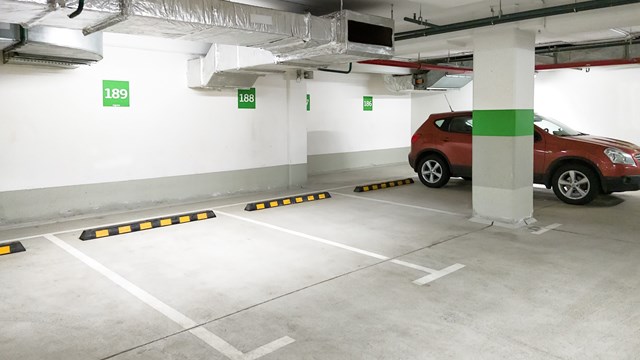—Paying for Parking
A “The answer to the question requires a review of your co-op’s governing documents—the bylaws, proprietary lease and house rules,” says Garden City, Long Island-based attorney Marc H. Schneider. “In that regard, it is likely that you are responsible for the actions of your son, who would be considered a visitor or guest. Most co-op proprietary leases contain a provision that allows a co-op’s board of directors to adopt house rules. Such house rules are considered material requirements of which rules must be followed by a shareholder’s family members, guests and/or invitees. Additionally, co-op proprietary leases generally provide that a breach of a house rule by a shareholder, his/her guest or invitee, is a breach of the underlying proprietary lease. Such provision usually takes the following form:
“The lessee hereby covenants to comply with all such house rules and see that they are faithfully observed by the family, guests, employees and sub-tenants of the lessee. Breach of a house rule shall be a default under this proprietary lease.
“Likewise, parking rights at a co-op are typically set forth in a co-op’s house rules. In that regard, the co-op may set a policy which requires a shareholder to pay for parking privileges as well as for guests to pay for their parking rights. As indicated, the co-op’s parking policies, which are likely contained in the co-op’s house rules, will dictate the final answer to your question.”
“However, your question does not indicate what the tickets are for, (i.e. are there specific house rules which were violated and/or a provision in the proprietary lease and/or the bylaws which provides the co-op with the right to issue a ticket for a violation?)
Certainly, if your son did not violate the co-op’s governing documents, or if the co-op’s governing documents do not provide the ability to issue fines (which is what the ticket likely is), you should respond to the co-op’s board of directors accordingly. However, in the event your son did violate the co-op’s governing documents and the co-op is afforded the right to fine, you will be required to pay the monies demanded, if there exists a right in the governing documents. Notwithstanding, if you do not pay monies which are properly owed to the co-op, same can be deemed a default under the terms of your proprietary lease, entitling the co-op to seek to evict you from the apartment as well as to foreclose your shares and proprietary lease. Likewise, depending on the agreement entered into for the license to park, both you and your son may have your vehicle parking passes rescinded.
“Clearly, it is important that you ensure that all of your guests and occupants of your apartment comply with the co-op’s house rules to the fullest extent so as to avoid the issue with which you are currently faced. After all, you purchased him the parking pass, which he likely would have not been entitled to, if you were not a shareholder of the co-op. Parking is a privilege and not a right in most co-ops. As such, compliance with the house rules regarding the use of the parking facility will avoid the issue which you are faced with in the future.”







Leave a Comment